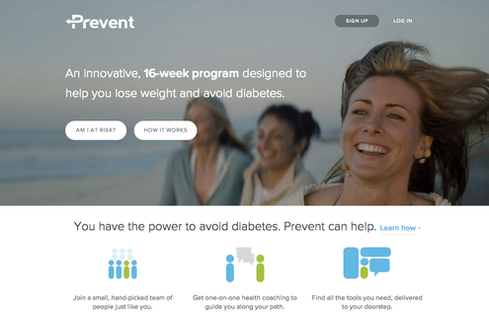Homecare IT: 1 Market Epic Doesn't DominateHomecare IT: 1 Market Epic Doesn't Dominate
Specialty vendors Homecare Homebase and Thornberry get the highest ratings from customers, says KLAS Research, with healthcare IT juggernaut Epic Systems described as a "laggard."


8 Healthcare Startups Catch Fire
8 Healthcare Startups Catch Fire (Cick image for larger view and for slideshow.)
Epic Systems has become so dominant in so many sectors of healthcare IT that it's a surprise to see it turn up as an also-ran, which is where it places in the latest KLAS Research survey of homecare clinical and business software. The best loved and most capable products in that category don't come from any of the major healthcare software vendors, but from specialists, including Homecare Homebase, Thornberry, and Delta Health Technologies.
"These are not the typical enterprise vendors we usually think of," said Erik Bermudez, author of the report. Those are the three companies the report identified as leaders, based on ratings of their ability to provide needed tools, as well as the pace at which they are innovating.
McKesson and Allscripts have products for the homecare market, but KLAS categorizes them and Healthywise as "followers," whereas Epic is lumped in among the "laggards."
[What does the future hold for health IT? Read 3 Trends Are Reshaping Healthcare IT. ]
These rankings don't correspond to market share, Bermudez said. For example, McKesson has a large market presence even though users give it mediocre ratings. Thornberry is a small company with a small number of users, who also tend to be smaller operations, but those customers are happy with the product.
Homecare Homebase has a larger market presence, and the KLAS report calls it a "high-performing vendor with quality product and good history of development and regulatory compliance." The report notes that 98% of Homebase's customers said sticking with the product was part of their long-term plans. Hearst Corp. bought an 85% interest in Homecare Homebase in December, essentially acquiring the company.
Delta Health Technologies also ranks high, but is just starting the process of transitioning from "an outdated user interface" to a cloud-software product that so far has only a handful of customers, according to KLAS.
Homecare software is used to manage the operations of agencies that provide nursing and other services in the home for patients who have been discharged from the hospital but still need monitoring, long-term care in the home, or hospice care. Although these agencies have some of the same clinical data-tracking and insurance-building needs as other sectors of healthcare, they are also different enough to have nurtured a distinct group of software vendors to cater to their needs.
Epic offers homecare software as one module among many in an enterprise suite for hospitals, some of which operate homecare businesses. "They're never going to sell that as a stand-alone product. They're always going to piggyback off the suite," Bermudez said. Although Epic has had a product in the category for a decade, it has been developing it at a very slow and deliberate pace. This was the first year it even had enough customers to be included in the survey. Eventually, Epic is likely to have a first-class product in the category, but it won't get there quickly, he said.
To date, there hasn't been a compelling reason why homecare software had to be part of an integrated suite like the one Epic provides. That could change given the rise of accountable care organizations and other population health management initiatives, which could make it more important that hospital care be coordinated with home care intended to ensure a successful recovery and to avoid the need for a hospital readmission. Healthcare organizations are increasingly being penalized for readmissions by the government and by insurers, on the theory that these are signs of having failed to deliver proper care in the first place. Healthcare organizations operating under those rules will want insight into the entire continuum of care, which implies the need for tighter integration between homecare products and hospital electronic health records.
On the other hand, although some hospitals are buying physician practices to build integrated delivery networks, there is no sign that this trend will extend to homecare agencies. That makes it less likely that homecare organizations will get their software buying choices dictated by a hospital that might be an Epic shop, Bermudez said.
The government's Meaningful Use incentives programs don't directly affect this market segment, except for ripple effects from the affiliated hospitals implementing EHRs. Instead, the software tends to be judged based on whether it can reduce claims-processing labor or allow caregivers to save time and see more patients, Bermudez said. "The trend is absolutely that technology is helping them become more efficient."
information 2014 Healthcare IT Priorities Survey: Healthcare providers are under pressure from Meaningful Use Stage 2, ICD-10 implementation, and from the transition to new population health/accountable care business models -- all of which have big impacts on information technology needs. We'd like to know how your organization is responding. Take the information 2014 Healthcare IT Priorities Survey today and be eligible to win a great prize. Survey ends Feb. 14.
About the Author
You May Also Like






